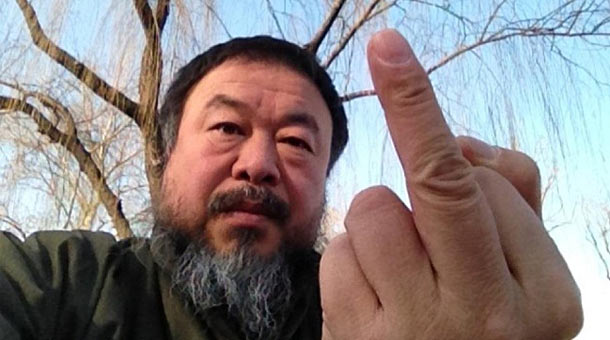
Without a doubt Ai Weiwei is a fascinating person who stands for unbelievably important things but that does not mean the documentary completely succeeded.

Without a doubt Ai Weiwei is a fascinating person who stands for unbelievably important things but that does not mean the documentary completely succeeded.
Arguably one of China’s most famous artists of today is Ai Weiwei, who is not only known for his craft of being an artist but also a political activist against the Chinese government. Alison Klayman’s documentary sets out to expose his message that the Chinese government is trying so hard to cover up. If you have never heard of Ai Weiwei before the documentary will bring you up to speed on the determination this man has.
The documentary starts off by showing Weiwei’s home studio that houses 40 cats. He believes that the biggest difference between cats and humans is that they will not close the doors behind them when they walk through. Which is kind of a bizarre statement until you find out that one of his cats can supposedly open doors. What does this have to do with the rest of the documentary? I am not sure if it was anything more than introducing Ai Weiwei’s outside the box thinking. There must have been a better way to do that though.
Ai Weiwei got his first major break as an artist when he helped designed the ‘Birds Nest’ stadium for the Beijing Olympics back in 2008. But even though he helped with the stadium design, he stayed far away from the opening ceremony of the Olympics. Weiwei believes that the Olympic games were more for propaganda than anything else.

He admits that he does little of the actual work in his productions now. Instead, he prefers to have the people around him implement his ideas. It is not that he lost his artist touch at all, he just has a busy schedule blending the artist that he is as well as an activist against the Chinese government. Plus, most of his work is on such a large scale that a crew of helpers are needed anyways.
The documentary goes into detail about one of his most important “art awareness” pieces about a deadly earthquake. Back in 2008 China suffered a major earthquake that killed over 5,000 students when a government building collapsed killing the kids inside. The total death toll of that same earthquake was around 70,000 people in the city of Sichuan. The government refused to answer any questions about the incident as it tries to keep the story as quiet as they can.
While walking around the demolished school building, Weiwei photographed the devastation and Tweeted about it. Eventually, he came up with an idea of hanging 9,000 school bags on a side of a building in remembrance of the thousands of young kids that died that day. He also gathered as many of the kids names as he and a team could find doing their own investigation, a job that the government should have done.
At one point in the documentary Weiwei all of a sudden has a child. To add to this confusion, it is not clear on who the mother of the child is. Weiwei seems to tip-toe around that topic but does eventually say the child does not belong to his wife but instead a friend. The people behind the documentary attempt to dig a little further into the subject but Weiwei does not offer a ton of information which make for an awkward conversation to watch.
Without a doubt Ai Weiwei is a fascinating person who stands for unbelievably important things but that does not mean the documentary completely succeeded. It did not seem very well organized which resulted in an unbalanced flow of information. The documentary felt more like a patchwork of good ideas and information that did not seamlessly blend in to one another very nicely.
In addition to the faulty editing, Ai Weiwei: Never Sorry often felt like Weiwei himself was directing the film instead of just being the subject. Other than conveniently filming around the time that he went disappearing for 81 days when the government detained him, the documentary let Weiwei do most of the investigating work. At the very least, the documentary serves as a good biography on an artist that deserves more recognition.